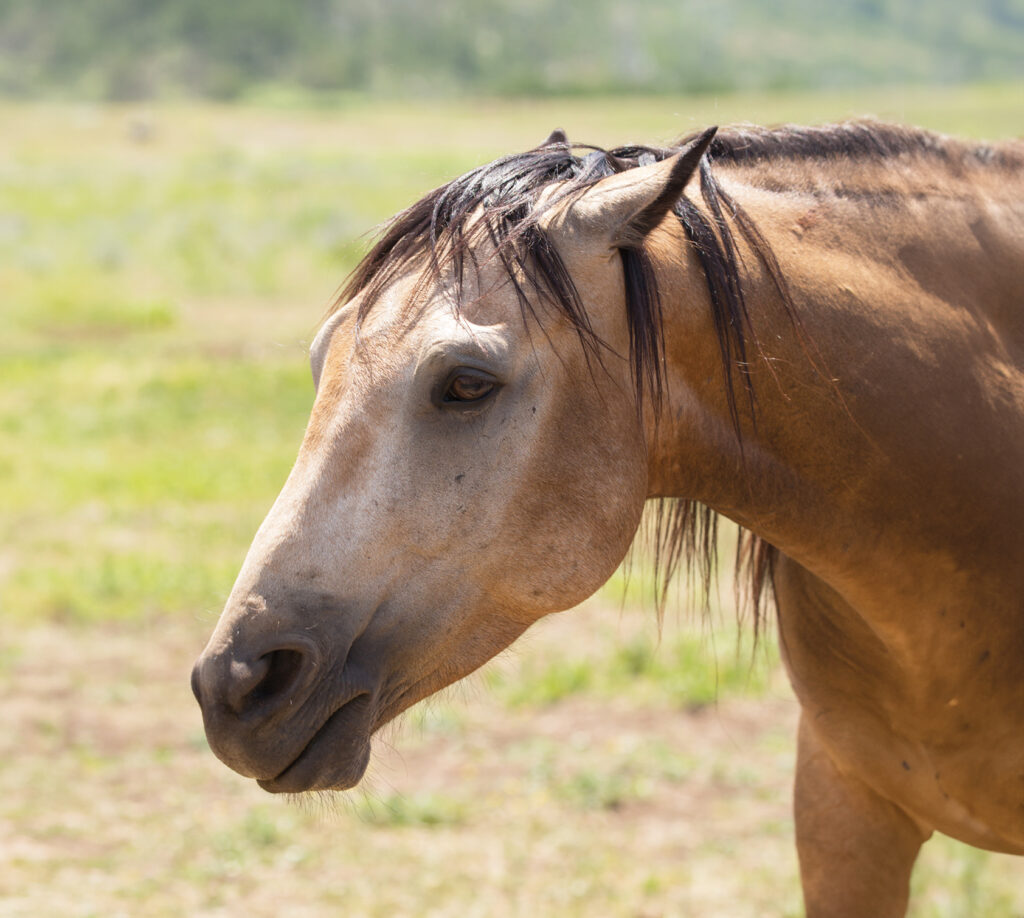When a new horse moves into the barn, it’s imperative to partner pasture mates mindfully to create good relationships.
Whether you’re adding a horse to your own barn, or a barn mate is bringing in a newcomer to your boarding facility, it can be challenging to manage their social dynamics. We turn out horses together in the pasture daily. It’s good for them to get out of their stalls and stretch their legs. Before we can do that, we consider our horses’ personalities and which ones will get along. This is so they can enjoy their time outside without drama or injury. Truthfully, one bad apple can spoil the whole bunch.
Here, I’ll discuss the root of the “bully” behavior some horses show when turned out. As well as problematic personalities to keep apart, and one possible side effect of keeping pasture mates together all the time.

The Root of Bullying and Pushy Behavior
Most horses that are well-trained and kept in work have better attitudes and are more adaptable to new members of their herd. It’s the ones that are allowed to get away with anything and aren’t in a regular working program that tend to be pushy and even downright aggressive.
For example, I’ve had a horse I call a “body blocker.” When turned out, he’ll run up to another horse and run into him with his chest. But, when that same horse is in a work program, getting ridden, and is expected to have manners, he doesn’t “body block” when turned out.
I understand that it’s not always possible in all situations. But the more a horse is handled and held to expectations, the less likely he’ll be aggressive when turned out. As well as the less impatient and pushy he’ll be when it comes to everything from feeding to farrier visits. To put it simply and adapt an adage: a tired horse is a good horse.
Pick Your Herd Partners Wisely
As a horse owner, it’s your responsibility to know how your horse acts in a herd and reacts to other potential herd mates.
Horses that are overly playful during turnout can rile each other up and it turns into nonstop racing around the pasture. Which can be dangerous to them and their herd mates. If you know a horse is more of a bully, don’t turn him out with the most docile horses in the barn—they’ll just get beat up.
Picking pasture partners really is all about common sense. The same thing goes for stalling horses beside each other. Two high-energy horses stalled next door to each other will likely be chaos. Know your horses and/or the other horses in your barn and plan accordingly.
Do a Gut Check
Following your gut is almost always the best decision. But in this case, it also means checking an aggressive or bully horse for other reasons he might behave that way. Many times, horses are suffering from ulcers and other “invisible” problems that we can’t see externally.
One example is ulcers. If your horse has a change in attitude from good to bad—or bad to worse—have your veterinarian take a look to ensure that something isn’t going on that could be easily treatable. Once it’s handled, both you and your horse can have a happier time together riding and when he’s turned out.
[READ: Does Your Performance Horse Have Joint Issues?]
Find Yourself a ‘T-Bone’ For Your Herd
I had a great horse named T-Bone. He was solid, reliable, and no-nonsense. Any horse we might’ve had trouble with during turnout, we’d put out with T-Bone. In the barn, if a horse was antsy in his stall or getting into trouble, we’d stall him next to T-Bone.
These steady horses provide needed calm for horses that can be bullies when turned out or in a stall. They don’t take any guff, but they’re also not instigators. I find that when I put a problem horse with a solid one, the troubling behaviors start to dissipate. Get a horse to set a good example, and the problem horse should get better.
But Don’t Be Too Buddy-Buddy
There is a downside to letting horses become too friendly with each other: they can become buddy- sour, which means when one horse leaves the other, one or both has a panic attack.
I’ve seen too many times when one horse is left tied to the trailer while the other horse goes to the arena or rides away, and the tied horse squeals and paws and loses his mind because he’s so connected to his buddy. As another example, I usually don’t let my assistants or my customers ride side-by-side when they’re walking around the arena. Those horses can pair up quick, and then you have a whole other problem to fix. Instead, provide enough separation that they’re not so reliant upon each other.

